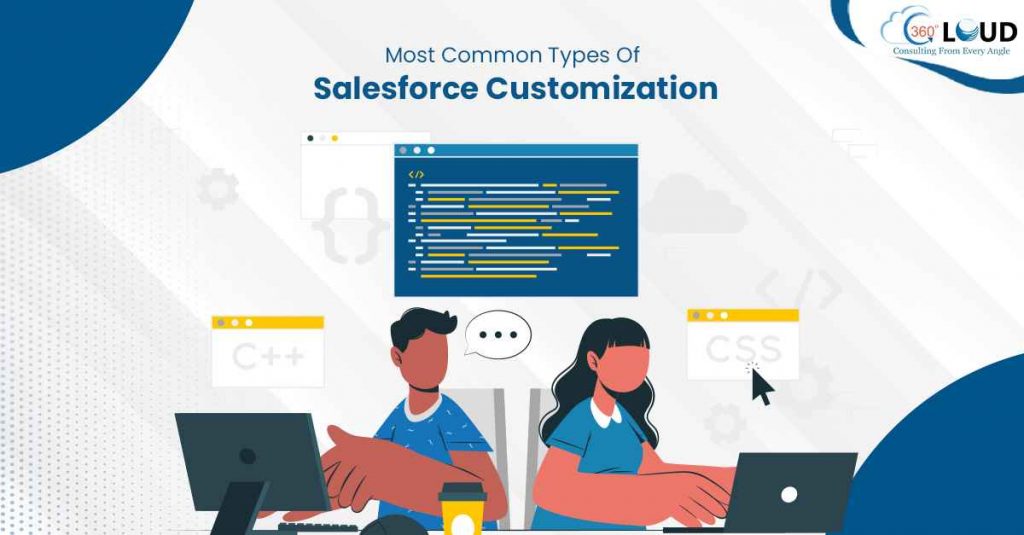We always call Salesforce an incredible CRM, but the truth is that the off-the-shelf version is nothing compared to the power of Salesforce once you customize it. Different types of Salesforce customization can help you better serve your business and your sales team.
Whether you consider Salesforce customization yourself or hire a Salesforce implementation partner to do so for you, the best thing to remember is that you can bend Salesforce to your will. Customizing Salesforce can allow you to perform functions like:
- Enable process automation to save time with data entry
- Create validation logic for protecting the data integrity
- Migrate legacy data over to Salesforce
- Integrate external systems with Salesforce, along with a lot more such features.
Three Types of Salesforce Customization
Although the type of your business and goals will determine the right customization you need, you must be aware of what kind of Salesforce customizations are available to choose from. There are three main types of Salesforce customizations- declarative, integration, and custom code.
Declarative
When you plan to move from standard Salesforce support to customization considering how it looks and responds to users, it’s all covered in declarative customization. This type of customization refers to setting up and using the native functionality of Salesforce or its declarative development features. In other words, it will cover clicking the right boxes to turn features on and off within the program according to the requirement.
Always consider giving preference to clicks than code since Salesforce configuration requires zero programmings. Declarative work doesn’t just affect the Salesforce dashboards but also helps configure back-end system resources. However, conducting this kind of customization can be fairly complex. Figuring out the right way to adjust Salesforce’s native settings properly can be hard to master, and you might need to consider a Salesforce consulting service to get this done.
Integration
You might be using various other enterprise applications to help you manage various aspects of your business before you implemented Salesforce. Many major enterprise applications offer apps for integration with Salesforce. The app categories could be:
- Sales
- Customer Service
- IT & Administration
- Marketing
- Finance
- Collaboration
Instead of having a disjointed process that forces your team to re-enter data, you can consider Salesforce customization to integrate the CRM with those applications. This will enable the data to flow smoothly from one program to the other without affecting the workload.
Custom Code
When you are done with your declarative options and still need more from Salesforce, then it’s time to look at your custom code options for enhanced customizes. Custom code centers on preparing code for new modules within the Salesforce framework.
These modules with custom codes can be used for business logic and front-end components. You can create custom dashboards and custom functions with APEX within Salesforce to perform activities like automatically updating fields, performing calculations, or creating records.
Stick to What You Need When Considering Salesforce Customization
When you are considering Salesforce customization, you should tread lightly. Businesses often make the mistake of coming up with lists of customizations for Salesforce that aren’t necessary. The best practice is to customize Salesforce is to do it in a way that meets the business needs.
Properly pacing and rolling out enhancements with the right support and training is the right approach. Get the support of our experienced Salesforce partners at 360 Degree Cloud to customize your CRM. To know more about our services, reach out at sales@360degreecloud.com.
